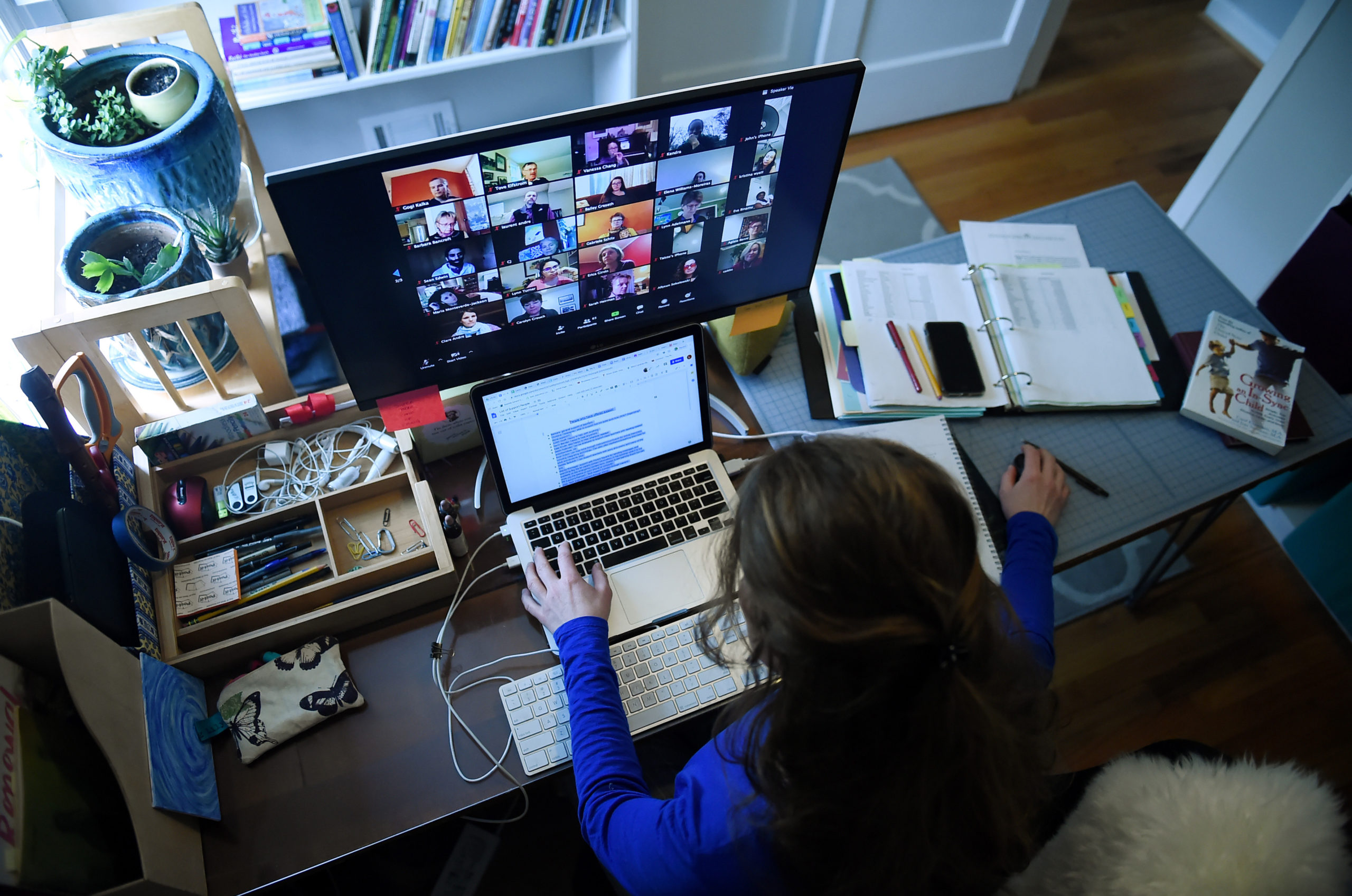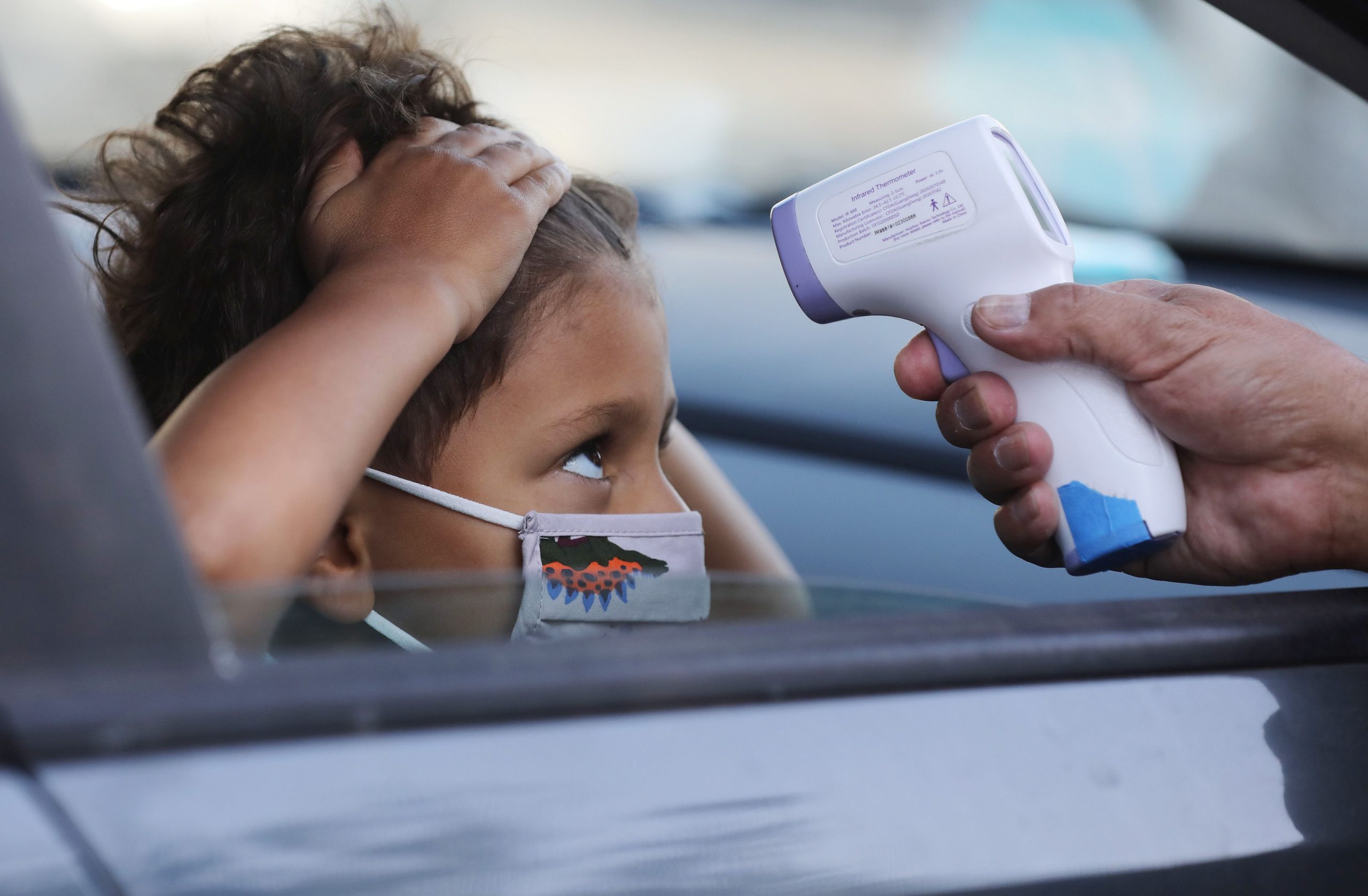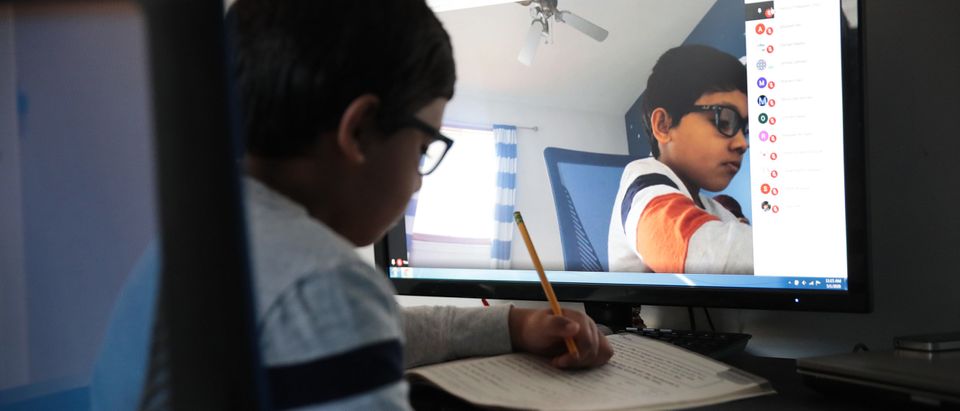- Children are gaining weight, developing eating disorders and online gaming addictions, and falling prey to predators as school closures continue, California pediatricians said.
- Data collected globally indicates that school openings did not cause a surge in coronavirus cases, yet schools in major cities have not reopened.
- “What are we doing here,” asks Dr. Veronica Naudin, a pediatrician from Vista, California. “Why are we making kids pay this price?”
Children are gaining weight, developing eating disorders and online gaming addictions, and falling prey to predators as school closures continue, California pediatricians said.
Elected officials enacted executive orders in the spring requiring Americans to lockdown and stay-at-home, resulting in school closures and remote learning as early as March. Officials have quarreled over whether schools should reopen this fall, and many teachers’ unions have taken strong stances against reopening, arguing that it puts teachers at risk.
Data collected globally indicates that school openings did not cause a surge in coronavirus cases, yet schools in major cities have not reopened.
Four out of five San Diego County K-12 students are still in distance learning almost a year into the pandemic, according to the San Diego Tribune, and several of San Diego county’s largest school districts have not indicated when they will reopen.
The schools may not reopen until county case rates in elementary schools have fallen below 25 per 100,000 residents and county case rates in middle and high schools have fallen below 7 per 100,000, the Tribune reported.
Depression
As the closures continue, UC San Diego pediatrician Dr. Janet Crow says middle school and high school students are either heading towards depression or are already depressed. (RELATED: Lack Of Internet, Technology, Meals: Teachers Detail Pitfalls Of Remote Teaching During Coronavirus Crisis)
The pediatrician described one of her 16-year-old patients who is no longer participating in Zoom school. The student’s mother is an essential worker who works two jobs, the Tribune reported, and the student himself works at a tire shop to help support his family.
“For all intents and purposes, he’s dropped out,” Crow told the Tribune. “It’s so heartbreaking for me because I’ve known this kid since he was born.”
Lost Progress
Students are also losing progress in multiple areas of their lives, UC San Diego pediatrician Dr. Leah Kern told the Tribune. (RELATED: The Very Real Harm Our COVID-19 Policies Are Doing To Our Kids)
Kern discussed one of her patients who has cerebral palsy and formerly went to physical therapy at school. Due to the pandemic, the patient must go to therapy on Zoom, and his progress is regressing, she told the publication.
Students’ grades have also suffered massively throughout the pandemic. Kern said that one of her patients who is in high school is now getting C’s after years of A’s since he is the only one home who speaks English and must help his second-grade brother with online school.

TOPSHOT – A lower school substitute teacher works from her home due to the Coronavirus outbreak on April 1, 2020 in Arlington, Virginia. (Photo by Olivier DOULIERY / AFP) (Photo by OLIVIER DOULIERY/AFP via Getty Images)
Dr. Veronica Naudin, a pediatrician from Vista, California, says students are logging into Zoom but not participating in school. Naudin told the Tribune that they have lost the will to participate.
She described a high school patient who stared at her computer screen for the majority of her two-hour final exam period. The student’s mother had to push her to finish part of the test, Naudin said.
The pediatrician also described a high-achieving high school senior who has stopped participating in online classes. The student is so depressed that she does not see why she should graduate, and her mother tells the school that her daughter is sick, Naudin said.

TOPEKA, KANSAS – APRIL 23: A girl holds a sign while driving past the state capitol building with her dad as demonstrators demand that businesses be allowed to open up (Photo by Jamie Squire/Getty Images)
“What we’re seeing is frightening, because it’s hard to see these faces. They are just empty,” Naudin told the Tribune. “When you talk about school, it’s like an emptiness to them, like school is just something that they’re enduring. I miss seeing those kids who would talk about school with joy.”
“What are we doing here,” she asked. “Why are we making kids pay this price?”
Weight Gain, Eating Disorders
“Gaining that weight and being that inactive so young … that can affect them for the rest of their lives,” Kern told the Tribune. (RELATED: We Watched Netflix’s ‘Cuties’ So You Don’t Have To)
Dr. Kumar works in the eating disorder unit at Rady Children’s Hospital in Encinitas, California. She told the Tribune that the pandemic has so overwhelmed her unit with patients that it was forced to move patients to other parts of the hospital.
Predators
Activists previously warned the Daily Caller News Foundation that as children spend increasing amounts of time on the internet — whether for online classes or for recreational and gaming purposes — they may be exposed to dangers while their parents are busy working from home or unaware. (RELATED: Porn And Predators: Activists Warn Of Internet Dangers For Kids During Coronavirus Crisis)
Kumar told the Tribune that children are falling victim to these online sexual predators as they spend more time online. The pediatrician described how children are engaging in inappropriate behavior such as sending sexual photos or engaging in sexual conversations on line.
Video Game Addiction
Kumar also described what looks “exactly like a substance use disorder” to the Tribune: patients who are so addicted to online gaming that they forget to do their homework, eat, sleep, or shower.

CULVER CITY, CALIFORNIA – SEPTEMBER 02: A student receives a temperature check before leaving the car to enter STAR Eco Station Tutoring & Enrichment Center on September 2, 2020 in Culver City, California. (Photo by Mario Tama/Getty Images)
All content created by the Daily Caller News Foundation, an independent and nonpartisan newswire service, is available without charge to any legitimate news publisher that can provide a large audience. All republished articles must include our logo, our reporter’s byline and their DCNF affiliation. For any questions about our guidelines or partnering with us, please contact licensing@dailycallernewsfoundation.org.


